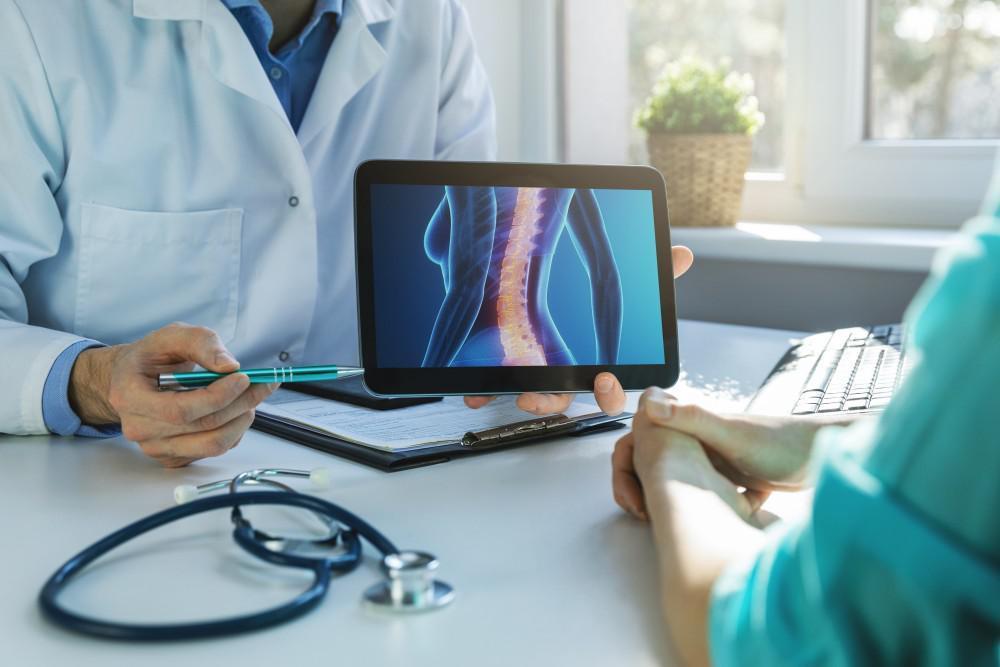
Spinal Stenosis: Can Laser Surgery Help?

Do you suffer from spinal stenosis, which is a narrowing of the spinal canal? If so, laser spine surgery may be able to give you relief.
In this blog, Bonaventure Ngu, MD, of Premier Spine Institute explains what spinal stenosis is, what its risk factors are, and how laser surgery can help treat it.
What is spinal stenosis?
Spinal stenosis is a narrowing of the spinal canal. If the canal narrows, it can apply pressure on nearby nerves.
Spinal stenosis most often occurs in the neck and lower back. In the early stages, the condition can cause pain and numbness in the hands or legs. If it advances, it can make everyday activities, such as walking, very painful. It can even cause a complete loss of sensation.
Spinal stenosis symptoms vary depending on where the narrowing of the canal occurs. If the narrowing occurs in your cervical spine, you’ll most likely experience symptoms in your hands and arms. If the narrowing occurs in your lower back, the symptoms will likely manifest in your legs.
Risk factors for developing spinal stenosis
Some people are born with a spinal canal that’s narrower than normal, which can increase their chances of developing spinal stenosis if their canal narrows with age. Most people develop spinal stenosis due to bone spurs, degenerative arthritis, poor posture, and excess weight.
The most common cause of spinal stenosis is degenerative arthritis, a type of arthritis that occurs due to wear and tear and inflammation in the body. Degenerative arthritis is also associated with high blood sugar levels and Type 2 diabetes.
How laser surgery can help
With laser surgery, Dr. Ngu makes small incisions to remove the tissue that’s putting pressure on the nerves. Once the tissue is removed, this should eliminate or reduce your symptoms. Laser surgery is less invasive that traditional surgery, which usually means less blood loss and a lower risk for infection.
You may be a good candidate for laser surgery if you experience heaviness in your limbs, which is a sign that your nerve impulses aren’t reaching your nerves properly. You may also be a candidate if conservative treatments don’t help.
However, as with any type of invasive surgery, there are risks associated with the procedure. When you see Dr. Ngu, he’ll give you a thorough evaluation, answer all of your questions, and discuss your treatment options. To learn more, book an appointment online or over the phone with Premier Spine Institute today.
You Might Also Enjoy...


Is Your Sleeping Position Causing Chronic Neck Pain?

Shooting Back Pain: Is It a Pinched Nerve or a Pulled Muscle?

Is It Ever a Good Idea to Push Through Shoulder Pain?

The Best and Worst Sleeping Positions for Your Back


